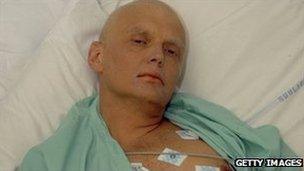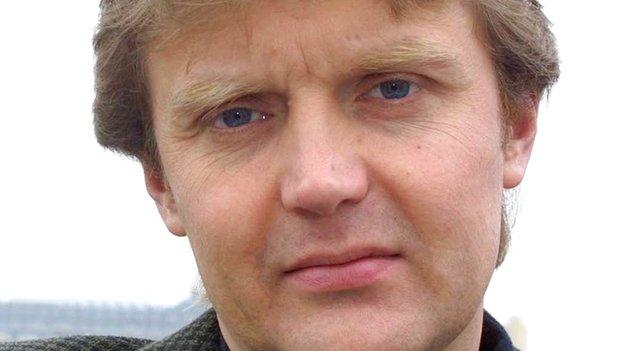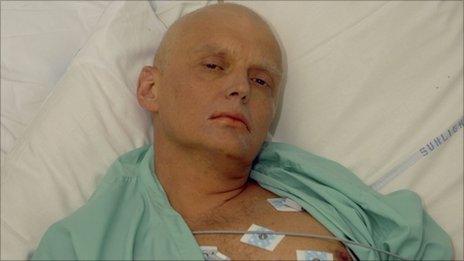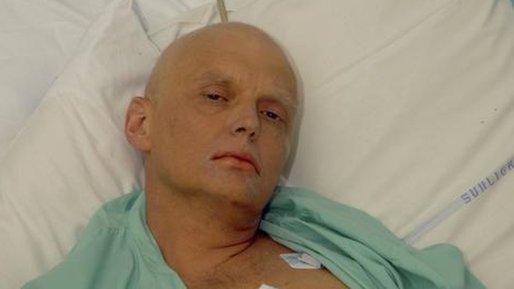Litvinenko's widow seeks public inquiry into death
- Published

Alexander Litvinenko fell ill after a meeting with former KGB contacts in London in 2006
The widow of former KGB spy Alexander Litvinenko has called for the upcoming inquest into his death to be abandoned and replaced with a public inquiry.
Marina Litvinenko said it was the only way to find the truth about the death of her husband, who was poisoned with radioactive polonium in London in 2006.
The coroner ruled the inquest could not take evidence on possible Russian state involvement, external, citing national security.
Mrs Litvinenko accused him of deciding to "abandon his search for the truth".
She said she was "utterly dismayed" by Friday's ruling, suggesting it was the result of a political deal between the governments in London and Moscow.
'Shocked and saddened'
The British government had argued that certain material should be withheld from the inquest on the grounds that revealing it could damage national security.
Sir Robert Owen, a High Court judge sitting as a coroner, said he had partly agreed to Foreign Secretary William Hague's request for secrecy in relation to the alleged role of the Russian state and whether the UK could have done anything to prevent the death.
But he said addressing these issues at the inquest without the material could mean a verdict would be "potentially misleading and unfair".
Sir Robert said one option would be for government ministers to scrap the inquest and order a public inquiry, in which some of the key evidence could be heard in secret.
He said he was seeking views on this, including from Mr Litvinenko's widow and son.
In a statement through her solicitors, Mrs Litvinenko said she felt the coroner had made a "decision to abandon his search for the truth about Russian state responsibility for her husband's death".
"All those concerned with exposing the truth will be shocked and saddened that a political deal has been done between the two governments to prevent the truth from ever seeing the light of day," the statement added.
She said she had written to the coroner to request that he invite the justice secretary to establish a public inquiry within five working days, and "as a matter of urgency".
Major delays
Mr Litvinenko, 43, died after he was poisoned with polonium-210 while drinking tea at a London meeting.
He was working for MI6 alongside Spanish spies in the days before his death.
Annie Machon, a former MI5 intelligence officer who left to become a whistleblower, told the BBC's Today programme the British government had demonstrated a "reckless approach" to protecting its sources.
She also suggested that MI6 may have broken the Universal Declaration of Human Rights by denying the right to life, article two of the declaration.
Police have sought the arrest of two Russian nationals in relation to the death - Andrei Lugovoy and Dmitri Kovtun - but the Russian authorities have refused to hand them over. They deny any involvement.
The inquest has already faced major delays because both the UK and Russian governments have been slow to disclose documents.
- Published21 January 2016

- Published17 May 2013

- Published27 February 2013

- Published26 February 2013

- Published13 December 2012

- Published2 November 2012
